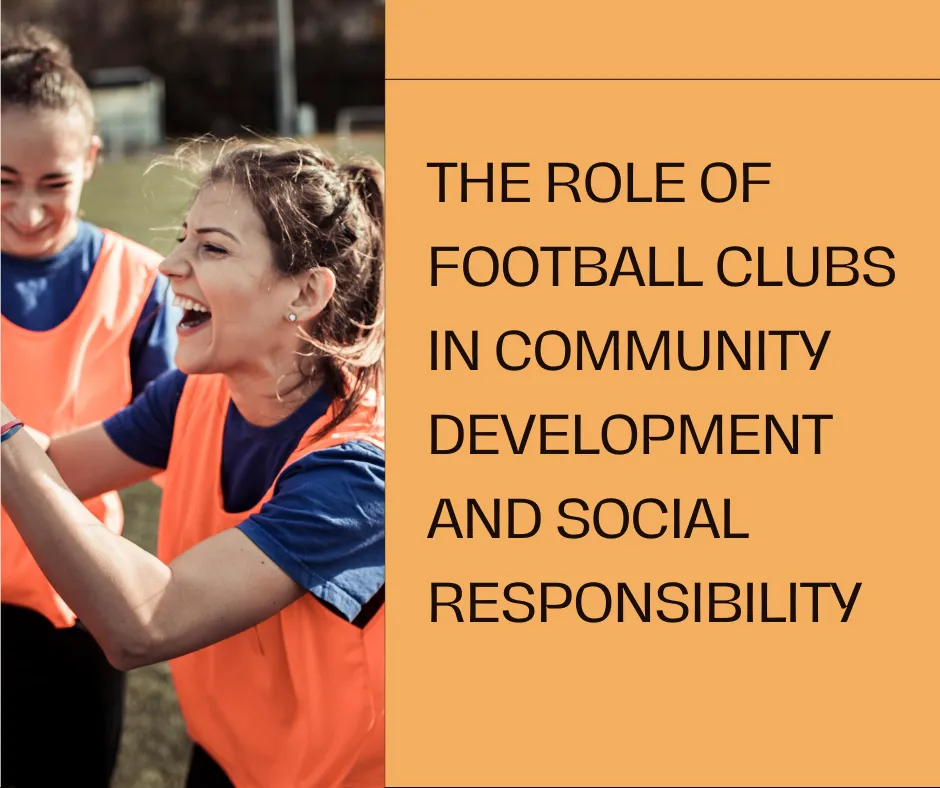The Role of Football Clubs in Community Development and Social Responsibility

Football clubs are not just sports entities; they play a significant role in community development and social responsibility. These clubs contribute to their communities through various initiatives, including educational programs, health and wellness campaigns, and efforts to promote diversity and inclusion. By understanding these contributions, we can appreciate the broader impact of football clubs beyond the pitch.
Contents
Educational Programs:
Many football clubs run educational programs aimed at supporting local schools and enhancing the educational opportunities available to young people. These programs often include after-school tutoring, scholarships, and partnerships with educational institutions to provide resources and mentorship to students. By investing in education, football clubs help to create a brighter future for the youth in their communities.
For instance, some clubs have established foundations that focus on literacy programs, STEM (Science, Technology, Engineering, and Mathematics) education, and leadership development. These initiatives not only improve academic performance but also inspire young people to pursue higher education and professional careers. The involvement of football players in these programs also serves as a motivational tool, encouraging students to strive for excellence both on and off the field.
Health and Wellness Campaigns:
Football clubs are uniquely positioned to promote health and wellness within their communities. Through various campaigns, clubs can address critical health issues such as obesity, mental health, and physical fitness. These initiatives often include free health screenings, fitness classes, and nutritional education workshops designed to encourage healthier lifestyles.
Many clubs organize community sports events, fun runs, and fitness challenges to engage people of all ages in physical activity. By promoting regular exercise and healthy eating habits, these programs help to reduce the incidence of chronic diseases and improve overall community health. Additionally, mental health initiatives, such as counseling services and awareness campaigns, provide crucial support to those struggling with mental health issues, fostering a more supportive and informed community.
Promoting Diversity and Inclusion:
Football clubs play a vital role in promoting diversity and inclusion within their communities. By actively working to create an inclusive environment, clubs help to break down barriers and foster a sense of unity among diverse groups. This commitment to diversity is often reflected in club policies, community outreach programs, and the composition of teams and staff.
Many clubs engage in initiatives that celebrate cultural diversity, such as multicultural festivals, anti-discrimination workshops, and partnerships with local organizations that advocate for marginalized groups. These efforts help to create a more inclusive community where everyone feels valued and respected. Additionally, clubs often use their platforms to raise awareness about social justice issues, advocating for equality and fairness both within and outside the sporting world.
Economic Impact:
Football clubs also have a significant economic impact on their local communities. The success of a club can drive tourism, create jobs, and stimulate local businesses. Match days bring thousands of fans into the area, boosting revenue for local hotels, restaurants, and shops. The presence of a football club can also attract investment and development, contributing to the overall economic growth of the community.
Moreover, clubs often partner with local businesses for sponsorships and collaborations, further integrating themselves into the economic fabric of the community. These partnerships can lead to job creation and business growth, providing economic stability and opportunities for residents.
Community Engagement and Volunteerism:
Football clubs actively engage with their communities through volunteerism and charitable activities. Clubs often organize volunteer days where players, staff, and fans come together to support local causes such as food drives, community clean-ups, and building projects. These efforts not only provide much-needed assistance to those in need but also strengthen the bond between the club and its community.
Additionally, clubs frequently partner with local charities and non-profit organizations to address specific community needs. Whether it’s raising funds for a local hospital, supporting a youth sports league, or providing resources to homeless shelters, these partnerships demonstrate the club’s commitment to giving back and making a positive impact.
Environmental Initiatives:
Many football clubs are also taking steps to reduce their environmental footprint and promote sustainability within their communities. Initiatives such as reducing energy consumption, implementing recycling programs, and promoting the use of public transportation are becoming more common. Clubs are increasingly aware of their environmental responsibilities and are working to set an example for their fans and the wider community.
Some clubs have even achieved certifications for their sustainability efforts, demonstrating their commitment to environmental stewardship. By promoting green practices and sustainability, football clubs contribute to the long-term health and well-being of their communities.
Supporting Local Youth and Talent Development:
Football clubs often invest in local youth and talent development programs to nurture future athletes and provide opportunities for young people. These programs include youth academies, training camps, and scholarship opportunities for promising young players. By supporting local talent, clubs help to create a pathway for young athletes to achieve their dreams and contribute to the sport.
These initiatives also have a broader impact on the community by providing positive role models and promoting healthy, active lifestyles. Young people involved in these programs learn valuable life skills such as teamwork, discipline, and perseverance, which benefit them both on and off the field.
Case Study: Arsenal’s Community Initiatives
Arsenal FC, for example, has a long-standing tradition of community engagement and social responsibility. The club’s Arsenal Foundation supports numerous local and international projects, focusing on education, health, and social inclusion. Initiatives such as the Arsenal Double Club, which combines football coaching with educational activities, help improve literacy and numeracy skills among young people.
Furthermore, Arsenal’s Arsenal football hospitality packages not only provide fans with exceptional match-day experiences but also support the club’s community programs. Revenue generated from hospitality packages often funds various community initiatives, ensuring that the club’s success on the field translates into positive impacts off the field.
Conclusion:
Football clubs play a crucial role in community development and social responsibility. Through educational programs, health and wellness campaigns, diversity and inclusion initiatives, economic impact, community engagement, and environmental efforts, clubs like Arsenal make significant contributions to their local communities. These efforts not only enhance the lives of individuals but also foster a sense of unity and pride within the community.


